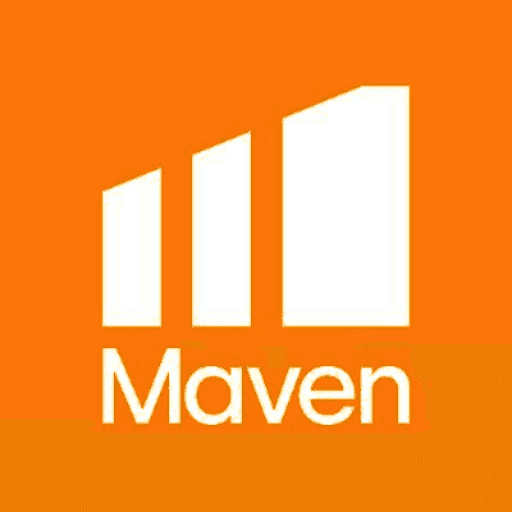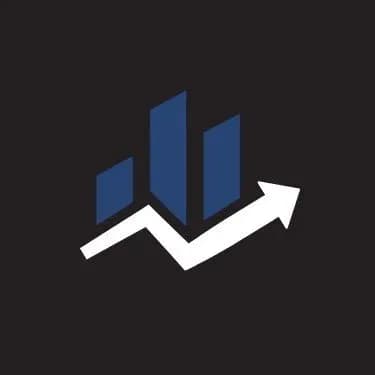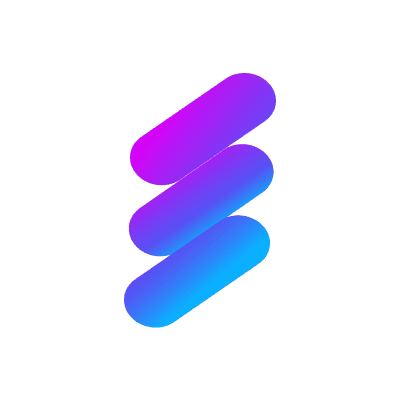Day Trading for Beginners 2025 Guide by The Trusted Prop
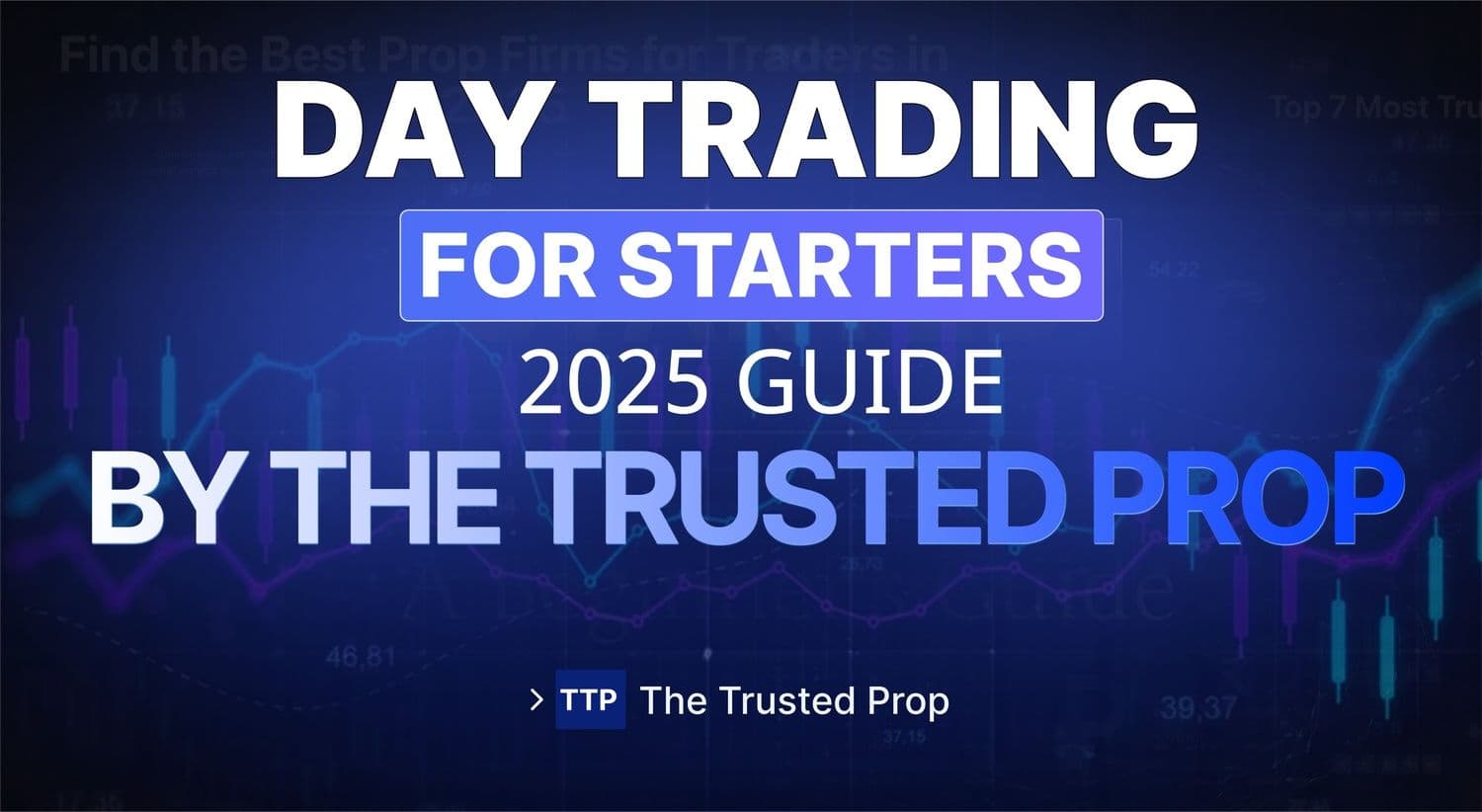
Day Trading for Beginners 2025 Guide by The Trusted Prop
6/16/2025
Introduction
Day trading the art of purchasing and selling a financial instrument within a single trading day is simultaneously captivating and frightening. Unlike investing for the long term, day trading requires fast paced decision making, in the moment assessments, and strong control over emotions.
Cost free brokerage, real time mobile applications, and even financed prop firm accounts have enabled more individuals to explore the world of day trading than ever before in 2025. However, as a beginner, where should you begin?
This guide from The Trusted Prop explains everything: what day trading is, starting tools and strategies, and how to sidestep the most common traps.
What Is Day Trading?
A day trader buys and sells a security within just one trading day in an attempt to make a profit off of very short term price changes. With this type of trading, one can make even dozens of trades per day in their attempts to gain profit from very small price changes in stocks, Forex, Crypto, or Futures.
In contrast to swing or position traders, day traders ensure that all open positions are settled prior to the market's closure so that no overnight risks are taken.
Why Do People Choose Day Trading?
In Day traders are in demand because of these reasons below In 2025:
- Less Requirements: Contrary to other forms of trading, day trading has a very low capital requirement and an even lower sophistication level. This can be made possible as platforms such as Zerodha, Upstox, TradingView, and even Binance provide these services.
- Prop Firm Funding: Companies like FTMO, MyFundedFX and The Funded Trader allow traders to use their funds for trading equity with no initial capital deposit.
- Fast Returns: You receive faster dollar returns because as a day trader, gains can be received quickly without having to wait or postpone your activities.
- Freedom Flexibility: Whether you are at your home or at a beach in Goa or café in Bali, anywhere with Wi Fi, you can work as long as there is an internet connection available.
How to Know If Day Trading Is Right for You
- Is it possible to keep track of markets within the outlined trading hours?
- Does quick decision making and high volatility in the markets make you uncomfortable?
- Are you ready to learn about technical charting and trading psychology?
Comparison Between Day Trading and Other Types of Trading
Day trading is all about making quick moves buying and selling assets within the same day to profit from short-term price changes. But how does it stack up against other styles like swing trading, scalping, or long-term investing?
| Feature | Day Trading | Swing Trading | Investing |
|---|---|---|---|
| Holding Period | Minutes to Hours | Days to Weeks | Months to Years |
| Risk | High | Moderate | Lower |
| Capital Needed | Low to Medium | Medium | High |
| Ideal For | Active Traders | Part Timers | Long Term Planners |
How Much Capital Do You Need to Start Day Trading?
One of the biggest questions new day traders face is: how much money do I really need to get started? The answer depends on your trading style, market choice, and risk tolerance but even a small account needs a smart plan.
Basic Tools Required For Day Trading
- Charting Software – All platforms come with at least one integrated charting tool, or you can use TradingView.
- Broker Account – Go for a broker with a good reputation, low spreads, quick execution, and is regulated.
- Prop Firm Account – Would you like to manage a fund without putting your own money at stake? Visit The Trusted Prop to search for the best funded accounts.
- Risk Calculator – Essential in calculating lot size concerning stop loss and risk%d.
- Day Trading Internet Cost – Day trading is extremely competitive and any delay over one second will be financially detrimental.
Best Beginners Forex Markets For 2025
Forex
- Bank forex market's Classic Traits: Opens 24/5
- Requires Low starting capital
- Provides High liquidity
Crypto
- Available 24/7
- Must Enjoy Volatile Markets
- Caution: Can be wild!
US Stocks
- Highly Regulated and Transparent
- Provide Easing in Chart Patterns
- Need higher capital
Indices/Futures
- Marked by Shifting Scalability in Profits
- Suitability: Must be Advanced Traders or Prop Firm Funded Accounts
Top Day Trading Strategies for Beginner Traders
1. Breakout Trading
- Trade the breakout of a key level(support/resistance). Volume needs to confirm the breakout.
- Price breaks ₹150 resistance with volume → Buy
- Stop Loss: ₹145 | Target: ₹160+
2. Moving Average Crossover
- Buy if short term moving average crosses above long term (9 EMA above 21 EMA)
3. Scalping
- Trades aimed to profit 5 10 points multiple times throughout the day.
- Not beginner friendly unless you're extremely disciplined.
4. Reversal Trading
- Trade a bounce from overbought/oversold areas identified by RSI or Bollinger Bands.
Risk management is the #1 difference between a successful trader and a gambler is how well they manage risks.
- Follow the 1% Rule
- Avoid risking more than 1% of your capital per trade.
- For a ₹10,000 account size, your risk per trade will equal ₹100.
Always Utilize Stop Loss
- Set a stop loss no matter how overly confident you feel. Losing one trade can dramatically impact your account balance.
Day Trading Psychology: Your Number One Enemy Is Yourself
In day trading, the biggest threat isn’t the market it’s often your own emotions. Greed, fear, and overconfidence can sabotage even the best strategies if you’re not mentally prepared.
Beginner Emotions That Hurt:
- Fear: Cutting winners way too early
- Greed: Over trading or taking way too much risk
- FOMO: Jumping in late to trades when a trend is already in play
- Revenge Trading: Trying to emotionally win back losses
The market doesn't owe you anything. Act like a robot, not a gambler.”
Solution:
- Note down your trade in a journal
- Restrict yourself from trading daily after a set profit/loss threshold.
- Take breaks away from your screen
Beginner Mistakes to Avoid
- Trading with no strategy written out
- Using excessive 100x leverage
- Ignoring news releases or earnings calls
- Trading based on random calls from YouTube or Telegram
- Not keeping a trading diary
- Trading with the sole intention of regaining losses
How to Day Trade Without Risking Capital
How To Paper Trade:
- Take advantage of free simulators such as TradingView or Investopedia that allow you to implement your strategy.
Demo Accounts:
- Use MT5 or cTrader demo accounts for simulated trading using fake money provided by brokers.
Prop Firm Challenges:
- Sign up for funded challenges that allow you to showcase your abilities without risking your actual capital.
👉 Check the best user friendly prop firms here: List of Prop Firms For Beginners by The Trusted Prop
An Actual Trade Example For Newbies
Example: You are an intraday trader for Nifty 50.
- Entry: 22,300
- Stop Loss: 22,250
- Target: 22,400
- Capital: ₹10,000
- Risk: 50 (0.5\%)
- Reward: 100 (1\%)
Risk/Reward = 1:2 → Exemplary setup
Tax Day Trading Gets Taxed In India 2025 Money earned from day trading is considered speculative business income and taxed at slab rate. Deductible: brokerage, loss, internet, tools, and expenses.
Trading Tools To Start Day Trading
Starting day trading requires more than just a gut feeling you need the right tools to analyze markets and execute trades fast. From reliable trading platforms to real-time news feeds, having the right setup can make or break your success.
| Tool | Purpose |
|---|---|
| Brokerage Account | For placing trades. Look for low fees and fast execution. |
| Charting Platform (e.g., TradingView) | To analyze price action and trends. |
| News Feed (e.g., Twitter, Investing.com) | Markets move fast; stay updated. |
| Simulator (e.g., Paper Trading) | Practice strategies without risking money. |
| Economic Calendar | Track key announcements that affect prices. |
Popular Day Trading Markets
- Stocks: High volume and volatility make it ideal.
- Forex: 24/7 expansive market with large movements.
- Futures: Institutional favorites with low spreads and high leverage.
Day Trading Basics For Newbies
1. Momentum Trading
Buy or sell trending bullish/bearish assets with lots of trading volume.
2. Breakout Trading
Place trades in the direction of breakout moves past a critical support or resistance level.
3. Scalping
Make a large number of trades and pursue very small profits from each.
4. Pullback Trading
Enter the market when there is a retracement after a dip in an uptrend or after a bounce in a downtrend in order to attempt to retrieve a better price.
Psychology of Day Trading
Day trading isn’t just numbers on a screen it’s a daily tug-of-war between fear and confidence, impulse and discipline. Mastering your mindset can be the deciding factor between consistent wins and costly slip-ups.
| Emotion | Impact | Solution |
|---|---|---|
| Fear | Missed entries | Use small position sizes to gain confidence |
| Greed | Overtrading | Stick to a plan and stop after profits |
| FOMO | Chasing rallies | Trade based on setups, not emotions |
| Revenge | After a loss | Take a break don’t force trades |
Step By Step Guide to Start Your First Day Trade
1. Choose A Market: Stocks on NSE, Crypto on Binance, etc.
2. Identify Setup: Support/resistance or breakout pattern.
3. Define Entry/Exit: Buy BTC at 30K, Stop Loss 29K, Target 31K.
4. Go ahead and place the trade on your broker's platform.
5. Adhere to the plan do not exit until the stop or target is hit.
6. Review what was done after the trade, detailing what went wrong or right.
Go Live with Small Capital
After you feel confident with paper trading, transition to live trading, but use a small trading account first. In the beginning, risk a tiny percentage of your capital per trade, maybe one percent. This allows you to avoid losses and instead focus on being consistent. Your aim shouldn't be to hit home runs, but rather build lasting habits.
Learn from Every Trade
To keep a trading journal, one must document:
- Why you entered the trade (your setup)
- What went right or wrong
- How you felt emotionally
- Whether you followed your plan
Weekly review your journal to check for patterns in your behavior and performance. With time, this self awareness becomes one of the strongest tools in your trading edge.
Always Trade With a Plan
You should never enter a trade without a plan. Before making a buy or sell order, you must determine
- Entry point
- A stop loss or how much you’re willing to lose
- Target or how much you’re aiming to gain
- Risk to reward ratio, ideally 1:2 or better
Best Platforms for Day Trading in 2025
Day trading in 2025 is faster, smarter, and more competitive than ever. Whether you're scalping crypto or flipping stocks, your platform can make or break your trades.
| Platform | Best For |
|---|---|
| Zerodha (India) | Stock day trading |
| Binance | Crypto |
| MetaTrader 5 (MT5) | Forex |
| TradingView | Analysis & alerts |
| TradeStation | Advanced tools for U.S. traders |
Day Trading Final thoughts: Start slow and scale fast.
It’s worth noting that day trading is not an easy way to make money; it requires significant time investment, practice, and discipline. The notion of quick profits can draw people in, but the reality is quite different: many beginners lose large sums of money because they try to jump into the game too quickly.That’s why platforms like The Trusted Prop exist to guide traders toward smarter, safer funding options.
Before spending real money, it is ideal to start with one or two low cost accounts using a demo or paper trading account. This helps refine strategies, test a couple of setups, and get used to live movement in the market without any financial risk. Consider this a flight simulator for traders you will make mistakes, and that is perfectly okay, but you are still able to learn the mechanics of trading without actually spending money.
You may also like
The5ers Payout Rules, Profits & Withdrawals (2026 Guide)
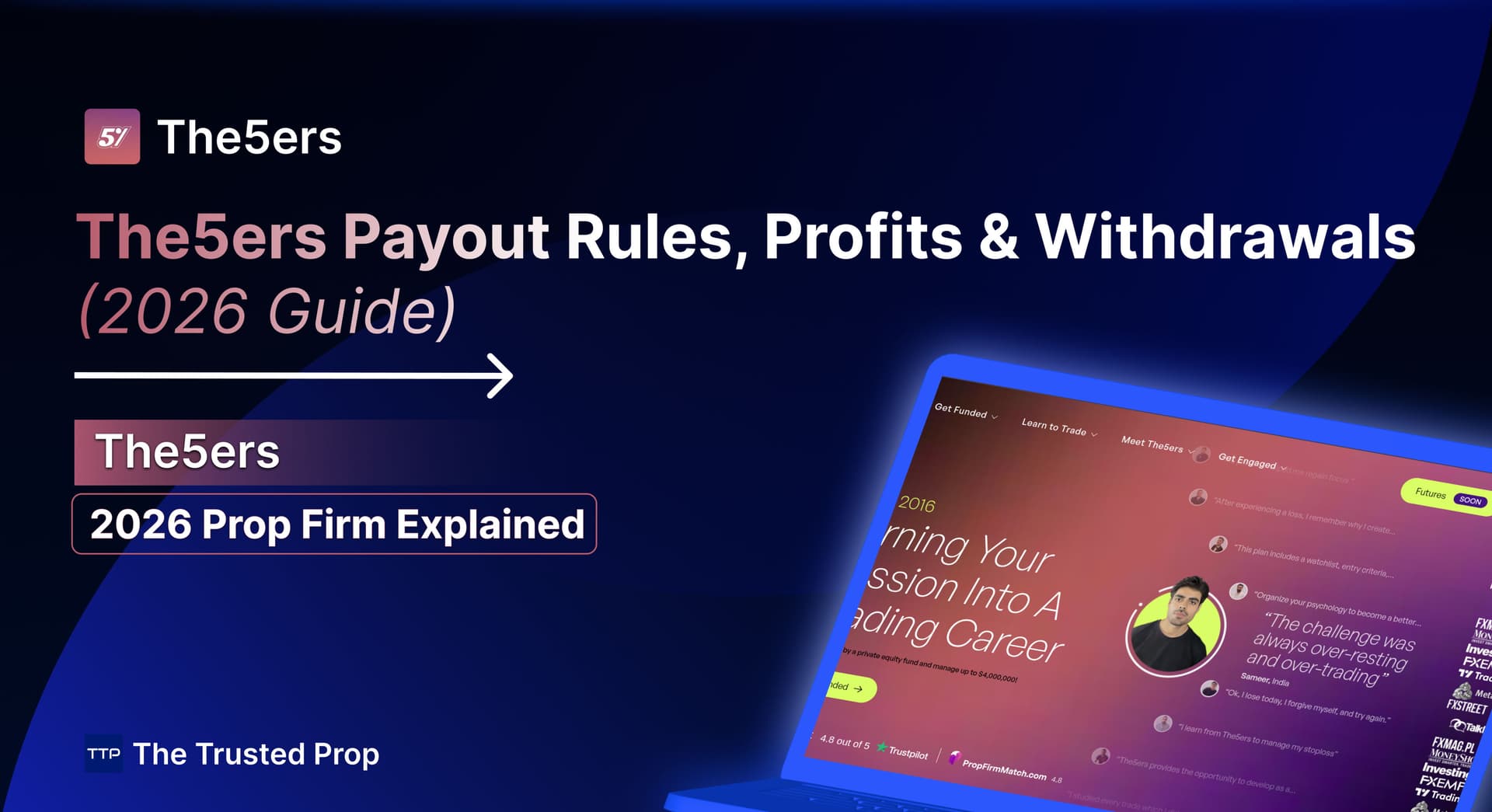
Goat Funded Trader Instant Goat Account Explained (2026)
.jpg&w=1920&q=75)
Goat Funded Futures Rules for Challenge and Funded Phase (2026)
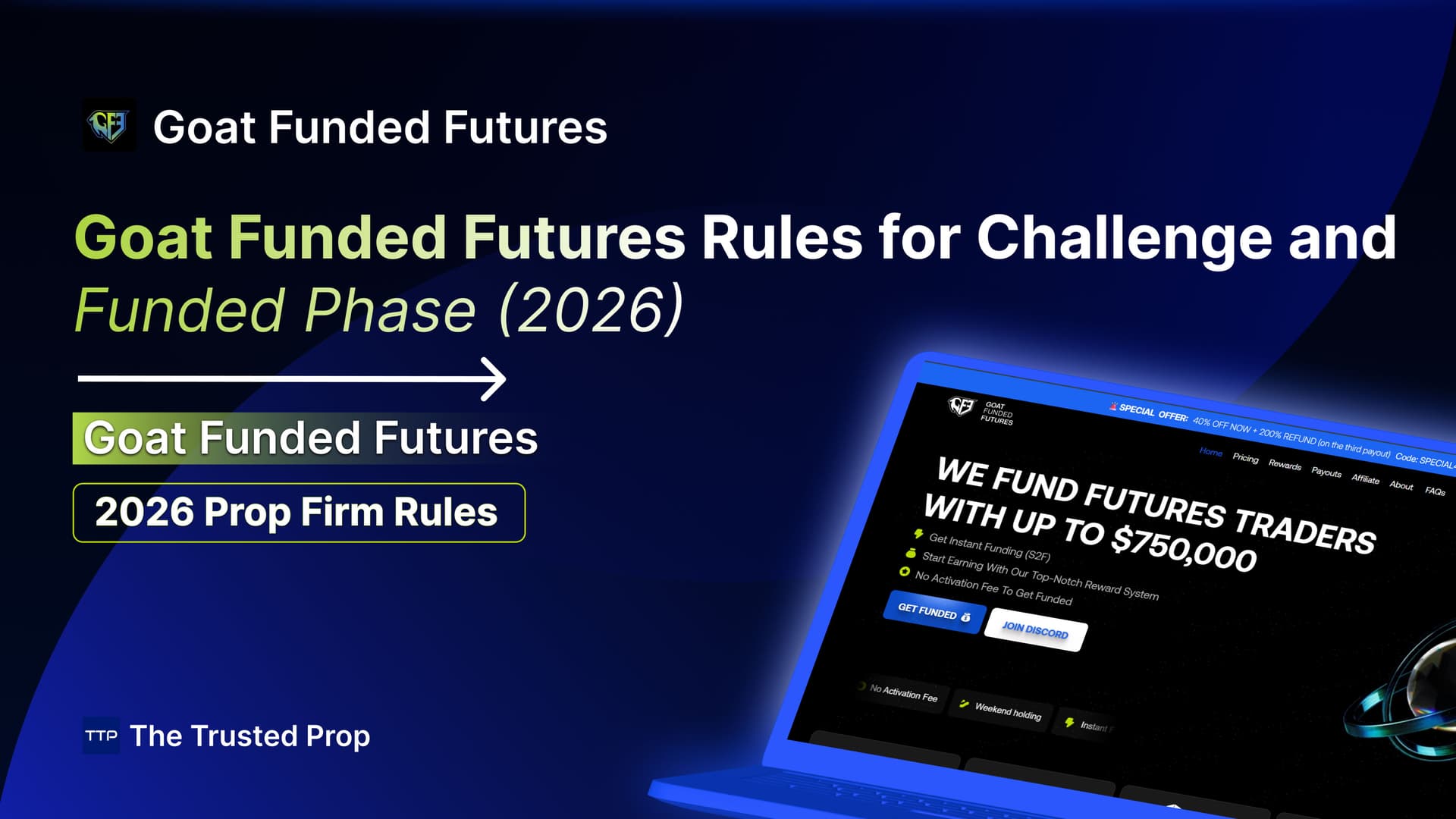
My Funded Futures Flex Challenge Explained (2026 Guide)
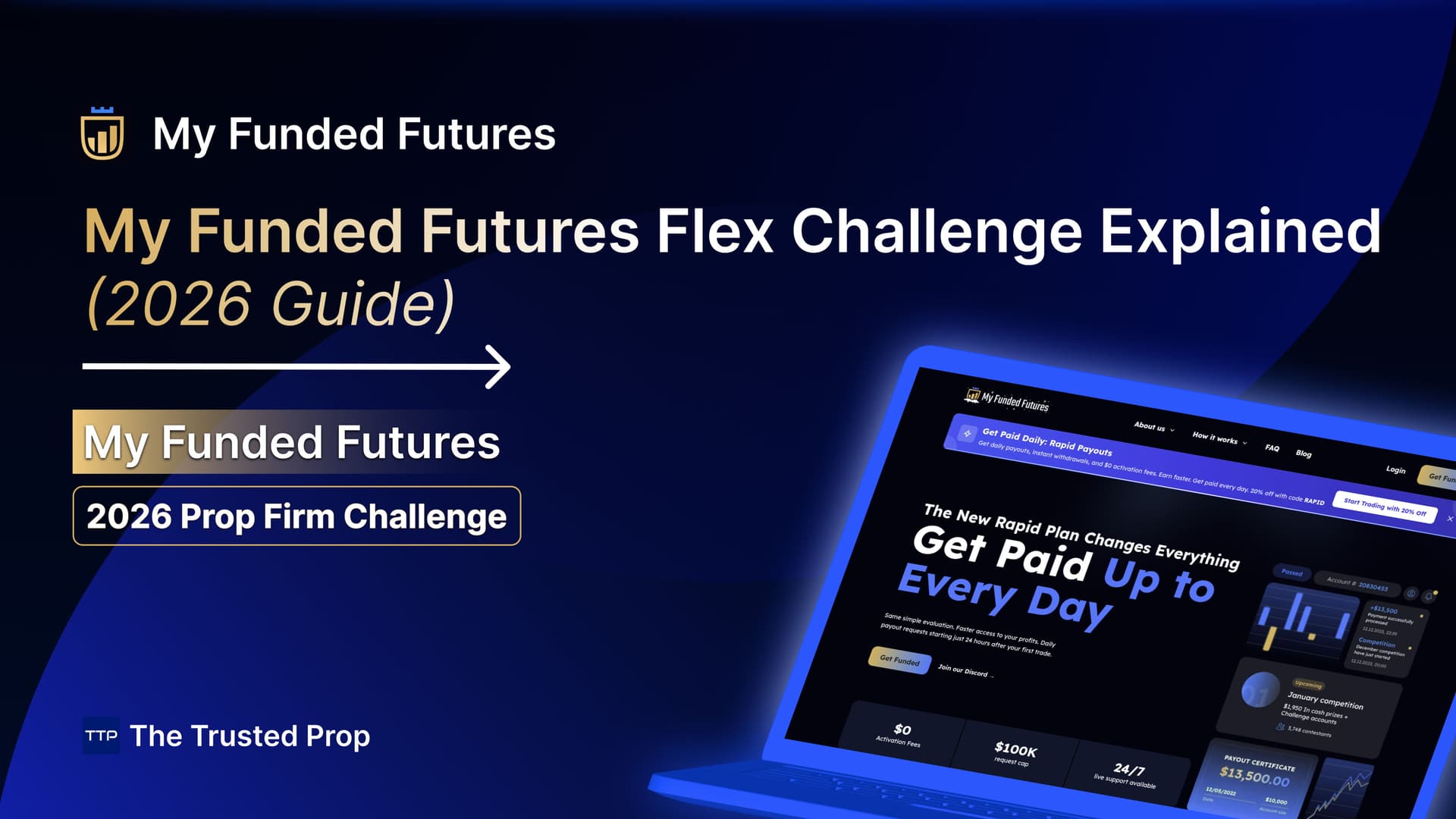
Moneta Funded Detailed Review 2026: Our Honest Verdict

Evercrest Funding Detailed Review 2026: Our Honest Verdict

Breakout Prop Detailed Review 2026: Our Honest Verdict
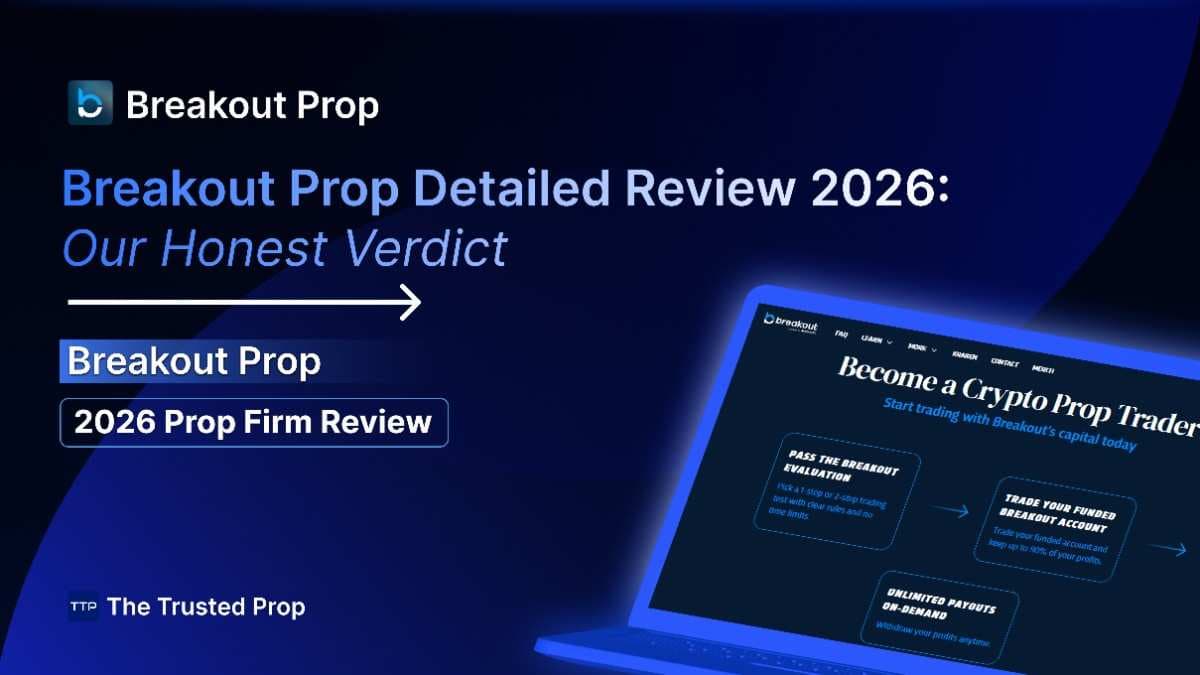
No FAQs are available for this topic yet.


